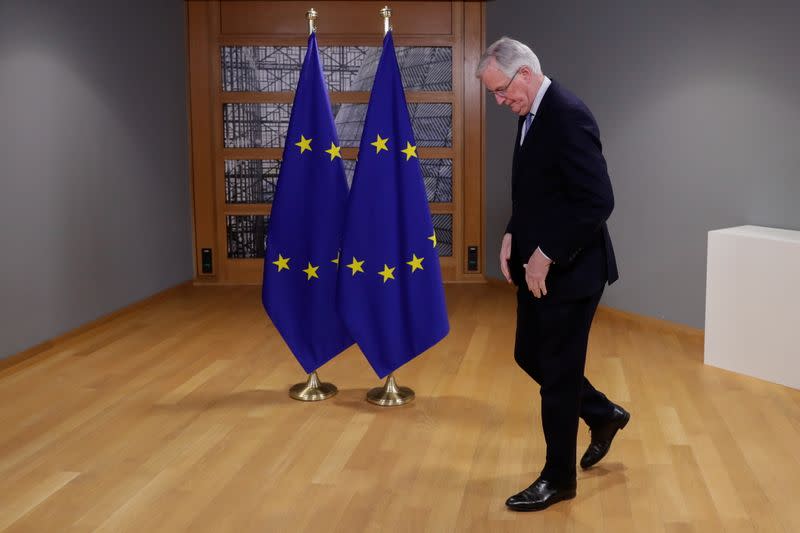BRUSSELS (Reuters) – The main Brexit negotiator in the European Union said Britain must accept the reality of Brexit and it was the UK’s exit from the EU that caused tensions between London and Brussels over Northern Ireland, not the protocol of divorce.
Britain has been seeking changes to the Northern Ireland protocol to the Brexit agreement after the European Commission sought to prevent vaccines from crossing the open border between EU member Northern Ireland.
“Both parties must be aware of their responsibilities in the full application of this protocol. The difficulties on the island of Ireland are caused by Brexit, not by the protocol,” said Michel Barnier at an event at the European Business Summit on Thursday.
“Protocol is the solution.”
Just under half of British companies that export goods have faced problems caused by the change in terms of trade with the EU since the beginning of the year, a survey revealed on Thursday.
Barnier said it was clear that there would be an adjustment period, but in the long run it would not be the same. “Brexit means Brexit,” he said, repeating a mantra coined by former British Prime Minister Theresa May.
Despite a commercial agreement without tariffs or quotas, companies face barriers, such as new paperwork and veterinary checks.
“Many of these consequences were not explained correctly, they were generally underestimated,” said Barnier.
Barnier also said that Brexit negotiations are closed and cannot be reopened. However, there may be “technical solutions” to problems such as those related to Ireland, as long as the rules are respected.
Barnier added that the national authorities of EU Member States will be vigilant as to a possible circumvention of the new restrictions by financial services companies.
He said the EU needs further clarification from the UK before making a decision on the equivalence of financial services, which will give Britain access to the bloc’s financial market.
“I can only repeat that the equivalence decisions are and will remain unilateral by each party and are not subject to negotiation.”
(Reporting by Philip Blenkinsop and John Chalmers; Editing by Catherine Evans)
